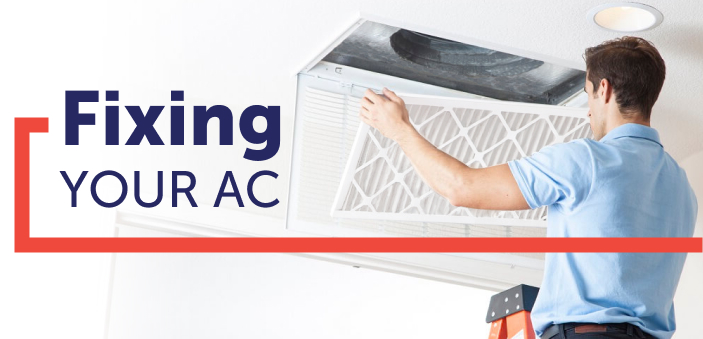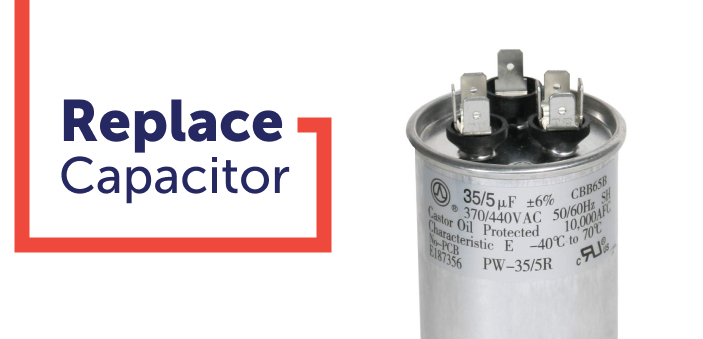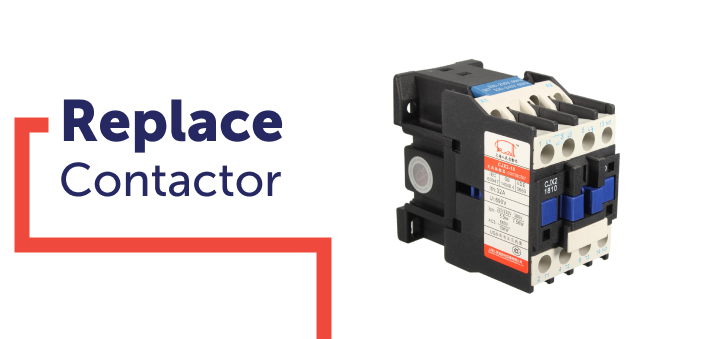AC Troubleshooting Guide
So, you’re having problems with your air conditioner. If only there was an expert in the air filter industry that could help out with that. Some sort of “filter king”, perhaps?
Welcome to Filter King’s growing list of AC troubleshooting guides. This is a weekly blog that focuses on common air filter issues, air filter maintenance, and air filter delivery. If you need an air filter or advice about an air filter, you’ve come to the right place.
What’s wrong with my air filter?
Filters are pretty easy to service. Bottom line, you either clean them or replace them. End of story.
Of course, the underlying causes of air filter issues can get pretty complicated. That’s where we come in – we’re an industry leader in air filters, so we have the solution to just about any problem you have.
We also write about the types of air filters, the air filter business in general, and how you can improve the quality of the air in your house.
- Custom Air Filters Across the United States
- Why is my AC filter black?
- Why is my air filter wet?
-
Why is my air filter whistling?
-
Why does my AC filter get dirty so quickly?
- High MERV Filters vs. COVID-19: Who Wins?
- The Property Managers Guide to Air Filters for Their Tenants
- ULPA vs. HEPA filters: Which one is better for me?
- The 5 Best Air Filters for Apartments
- Pleated vs. Non-Pleated Air Filters: Which is best?
- Where is there oil in my car air filter?
- Different Types of Air Filters and How They Work
- Best Air Purifying Plants For Indoor Use
- Why are air filter subscriptions so popular?
- Why is my air filter never dirty?
- Filter King's Favorite Types of Air Filters
- Best Air Filters for Homes
- What is an air scrubber and why do I need one?
-
Can I run my furnace without an air filter?
- What happens if I don't change my air filter?
- Can you recycle air filters?
- Why is my air filter frozen?
- How To Create Your Own Air Purifier
- Are MERV 13 filters worth the money?
- The Best Place to Put Your Air Filter
-
Where are my air filters located?
Air Filters Delivered
Remembering to change your air filters is, honestly, kind of hard. It’s just not something most of us think about on a daily basis. And that’s a problem because so many air conditioning and air quality problems are caused by bad filters. If we changed our filters more regularly, we’d all be better off.
That’s why Filter King is so committed to offering fast, reliable, affordable delivery for your new air filters. We even have a subscription service so you can set it up once, and then have new air filters delivered to your door automatically when your filters are due for replacement.
Combine that with our comprehensive list of HVAC troubleshooting guides, and you’re sure to feel the Filter King difference.
We have all sizes and types of filters on hand. Check out our store today to get your new air filters fast and easy. To stay up-to-date on new posts and guides, subscribe to your free monthly newsletter!
Air Conditioning Repair Guides at Filter King
If you own a home in the United States, there’s a pretty good chance you have an air conditioning system of some kind. Air conditioning is considered one of the most important inventions in the world, because only by the comfort it provides are economies in hotter climates able to progress past basic agriculture.
Without an air conditioner, the world would probably be much different. And if your air conditioning unit has ever gone out during a hot summer, you can definitely understand that idea.
If your central air conditioner system is broken, or if it smells affecting indoor air quality, sounds, or feels like there’s a problem, just take a deep breath. Filter King is THE expert in residential air filters and, by extension, air conditioning in general. We’re here to help.
Check out our air conditioner repair guides below, and subscribe to our newsletter to get updates whenever we add another one. We publish new guides every week!
Air Conditioning Repair Guides
Broken air conditioning can be a nightmare. Luckily, there is only a small number of common air conditioner problems that cause most outages. Below is a list of comprehensive guides to walk you through what might be wrong, and what you can do about it.
- Why does my AC keep breaking?
- Why does my AC smell?
- How to Save Money On AC
- How to Fix Your Air Conditioning
- The Ultimate Guide to How AC Works
- What are refrigerants?
- Property Managers' Guide to AC for Their Tenants
- The Ultimate Guide to Healthcare HVAC
- Our Top Five Favorite AC Companies
- My AC isn't blowing cold air. What can I do?
- Our Top 5 AC Units For Your Home
- Is my HVAC ready for winter?
- Best AC Brands for Offices
- What laws do landlords have to follow for AC?
- Who invented AC?
- What is a boiler?
- The Top Five Best Smart Thermostats of 2020
- HVAC Terminology Guide
- Common Residential Furnace Problems
- How to Check Your Air Ducts for Leaks - Learn how you seal the leaky air ducts
- How do thermostats work?
- What is ACH and how do you calculate it?
- How long do air filters last?
- How To Weather Strip Your Home
Preventative care for AC systems is the best way to keep your house cool for years to come. The best air conditioning systems were built to last. With proper maintenance, some air conditioners have been known to last 30 or 40 years without being replaced.
The air conditioning maintenance guides below give Filter King fans important tips and methods for keeping their air conditioner going. Check them out!
AC Self-Repair Disclaimer
HVAC professionals are professionals for a reason. Air conditioners can be extremely complicated, expensive, and dangerous. While an air conditioning repair guide can certainly help identify and fix issues, it’s no substitute for a trained pro.
We highly recommend getting a professional to inspect your HVAC system. If you really want to poke around your system by yourself, disconnect your house’s electricity entirely before touching anything. Failure to do so could result in electrocution and death. Seriously.
Be advised that if you hook something up incorrectly, leave a cover off, or just miss one small thing, you could cause an explosion or fire. We want you to be cool and comfortable in the heat, but safety has to come first.
If you want to be kept updated on new HVAC repair and maintenance guides, subscribe to our newsletter!
How to Fix Your Air Conditioning

Why is it so hard to get an HVAC repai technician to your house? It seems like central air conditioner repair companies actively TRY to make us wait on their schedule. It’s not fair, and I’m fed up.
I guess I’m not the only one. Filter King thinks it’s SO unfair, that they’ve given me the go-ahead to publish an AC repair guide, so our customers can save time and money by fixing their air conditioning themselves. It’s time to fight the system and secure freedom from expensive repairs that take days to complete. VIVA LA REVOLUTION!
Hold, comrades! Before we topple the oppressive air conditioning tyrants, we do have to clear one thing up. AC professionals exist for a reason. Working on your own central air conditioner system can be very dangerous. If you don’t feel comfortable working with electricity, mechanical parts, or refrigerant, you may want to sideline yourself for this particular revolution.
That said, let’s create a plan of attack:
1.) Find out what tools are needed to work on an AC system
2.) Diagnose common problems with air conditioner systems
3.) Use our tools to fix those problems
We ride at dawn. Let’s get started.
What tools do I need to work on my air conditioning system?

In order to dismantle the systematic subjugation of our people (homeowners on a budget), we’re going to need the proper tools. There are some things on our list that you likely already own, and a few that you’ll probably need to buy. I know, the whole point of this is to spend less money, but all of these tools should round out to less than $50, and even one successful repair with them will save you hundreds. Besides, everyone must make sacrifices for the good of the revolution.
Here’s a quick list of the tools and materials you’ll need:
1.) Wrenches – either a comprehensive set or a single adjustable wrench.
2.) Multimeter – a handheld Game Boy type thing that gives you values of current, voltage, and resistance
3.) Screwdriver – we prefer ones with interchangeable heads. Also, make sure it’s insulated.
4.) Socket wrench – the thing that does that really satisfying clicking sound as you move it back and forth
5.) Pliers – needle nose.
Depending on the fix you need, you may need to purchase parts or materials. This will be covered in more detail in future guides.
How do I diagnose the problems with my AC?
Our intelligence officers have discovered the secret plans that the Official State of Professional HVAC Technicians have kept hidden from the people for decades. These documents reveal the clandestine methods of AC repair units that we can now use to our advantage. Here’s an executive summary that we will be handing out to all of our revolutionaries.
To properly diagnose your central air conditioner problem, you have to know roughly how it works and which parts break down most often.
Modern air conditioners consist of two main parts. There’s a cooling unit, which rests outside your house. Then, there’s a kind of “distribution center”, usually in your attic, that takes the cold air from the cooling unit and moves it around your house.
Using this very basic framework, we can start to point to issues. If you hear your central air conditioner running and is blowing air, but it’s not cold, it’s a problem with your cooling unit. If cool air is dripping out of the vents, but there’s no force behind it, there’s a problem with your venting system or maybe you have a dirty air filter. You should read our guide about the consequences of having a dirty air filter.
The most common problems for your AC unit are as follows: dirty condenser coils, a broken start/run capacitor, and a broken contactor. We’ll break each of these down and walk you through the solutions.
The first step to any AC repair is to turn off all of the electricity in your house. Yes, all of it. “But I’ll have to reset all my clocks!” Steady yourself, comrade - inconvenience is preferable to death.
Ok, all joking aside for a second: You really do need to turn off your power. One slip up-and you could be electrocuted and killed. Air conditioner repair is dangerous. Make sure you REALLY know what you’re doing before you start. Alright, back to it.
Dirty Condenser Coils
This is one of the most common causes of an AC breakdown i.e the problem in the outdoor condensing unit. All you need to do to solve it is clean your condenser coils. Don’t worry, it’s not as hard as it sounds.
Take a hose with a spray nozzle attached. Go to your cooling unit (the big, loud, cube-shaped thing outside your house). Point the hose upward at the side of your AC unit and spray all the way around the top perimeter. You should see a bunch of gunk and dust being flushed out. Let it dry in the sun, and you’re all set. If that was your only problem, your air conditioner should kick back on soon. If not, we’ll have to go deeper.
Replace Your Start/Run Capacitor

Heads up, this is where things get really dangerous. Turn back now if you don’t want to risk a severe injury or death.
Your start/run capacitor is a critical component that fails fairly often. We need to inspect it and, if necessary, replace it.
First, turn your power off. On your outside cooling unit, you’ll see a panel with some screws holding it in place. Make sure your power is OFF. Unscrew those screws and remove the panel. By the way, make sure your power is turned off. From there, you can inspect the capacitor. Move some wires around with an insulated screwdriver. See if any are chewed up, broken, melted, or rusted out. Take a photo of the entire arrangement before continuing work. This will help you put everything back where it needs to be when we’re done. If you see any malfunctioning wires, they’ll need to be replaced. Now, on to the capacitor itself.
Your start/run capacitor is what helps your system turn off and on several times a day without burning motors and causing damage to itself. It looks like a big cylinder with some wires coming out of the top. If yours looks old, rusty, and pathetic, you should probably replace it.
Even though it may not be the direct cause of your outage, an old capacitor cannot do its job of preventing damage well enough. This means that replacing it will reduce the likelihood of future outages.
Before taking out the capacitor, you have to discharge it. Not to sound repetitive, but you REALLY need to make sure your power is off for this part. On the top of the capacitor, you should see three terminals labeled H, C, and F. Take your insulated screwdriver and touch it along both the H and C terminals for a few seconds. Then, do the same with H and F. The goal here is to create short circuits between the terminals, which releases the stored energy in the capacitor safely. WEAR GLOVES AND DO NOT TOUCH THE METAL OF THE SCREWDRIVER WHEN YOU DO THIS. If you do, your internal organs will suddenly become a very hot vapor and quickly escape through your various orifices.
Some capacitors only have two terminals. To discharge this, just do the same as above with only those two terminals.
Once you’ve discharged it, you can remove it, take it to the hardware store or look online, and get a new one of the same brand and model. Replace it by screwing it back into the system, replacing any wires removed during the process, and then securing the new capacitor to the system with its bracket.
Replace Your Contactor

Near the capacitor, you’ll see a complicated, roughly cubic thing with wires coming out of it. That’s your contactor. It goes wrong a lot, and it’s about $25 for a brand-spanking-new one.
Make sure your power is off. Remove the wires on the old contactor. Unscrew the contactor from the AC unit. Throw it aside, it’s garbage now.
Take your new contactor, screw it into the system, and replace the wires. Boom, new contactor. Easy peasy.
Next Steps
If none of those repairs fixed your air conditioner, fear not! We will be publishing more guides in the near future that cover issues that are less common. Be sure to check back with Filter King each week for more guides.
If these quick fixes did resolve your issues: Huzzah! The revolution was a success. Relish in the defeat of the tyrants! The work, however, is just beginning. With our new-found freedom from expensive repairs, we must ensure the longevity and sustainability of our way of life.
AC system maintenance is key to this. The number one thing you should commit to going forward is replacing your air filters AT LEAST every three months. This is what keeps your system, breathing well, and it can drastically reduce the likelihood of needing another “revolution”.
Filter King’s online store has any size of air filter you need. Just find your size, order it, and it’ll be at your house in a few days.
Disclaimer
We’ve had some light-hearted fun in this article, mostly at the expense of HVAC professionals. But in all seriousness, we recommend hiring a professional to do almost all AC repairs. They are vastly qualified, and even though you may have to wait, they’ll get the job done safely and correctly.
Working on your own air conditioner is dangerous. Let a professional take that risk, so you can live to fight another day.